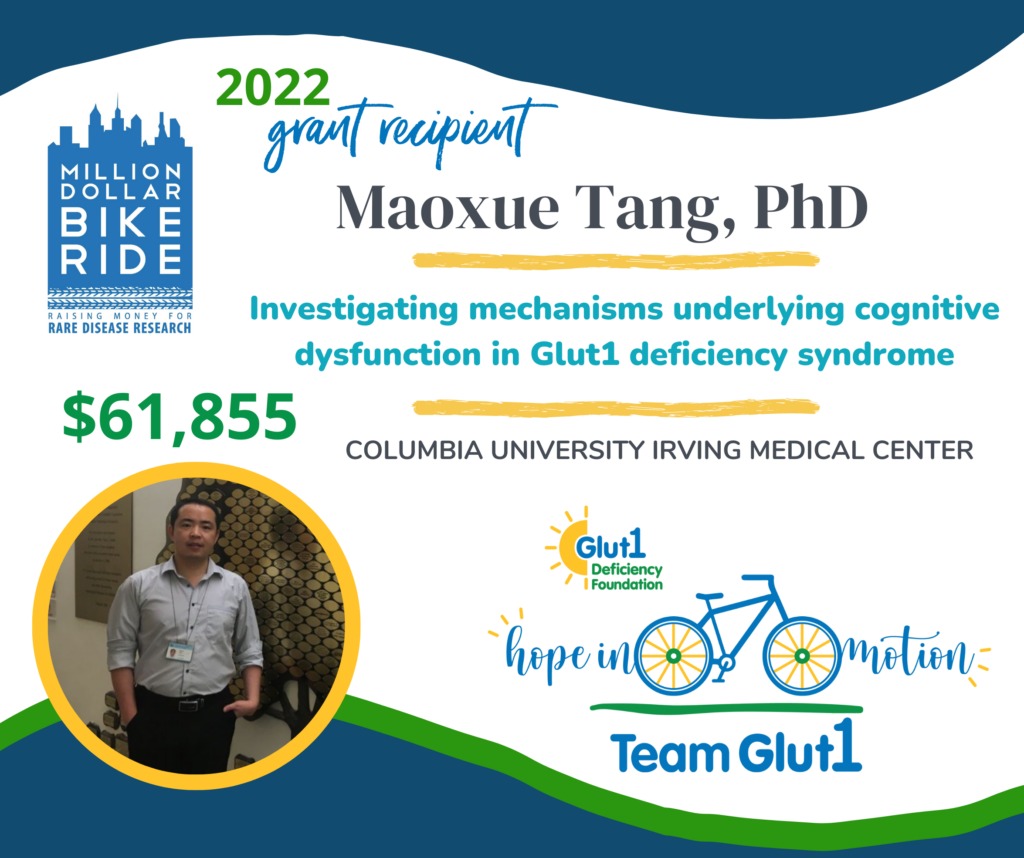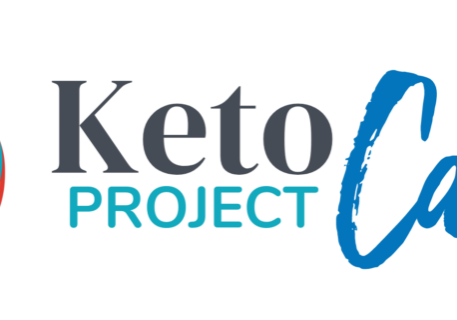2022 Million Dollar Bike Ride Research Grant Recipient: Dr. Maoxue Tang

We are thrilled to share news about the selection of Maoxue Tang, PhD, as the 2022 recipient of the Million Dollar Bike Ride grant for Glut1 Deficiency research.
This award was made possible thanks to the generosity of our donors who helped us qualify for a matching grant from the Penn Medicine Orphan Disease Center. We also gratefully acknowledge the Meisner family for their help in heading up these efforts for Team Glut1.
Dr. Tang has worked with Dr. Darryl De Vivo and Dr. Umrao Monani at Columbia University as part of the team advancing understanding of Glut1 Deficiency to help unlock potential new treatments. We appreciate his dedicated service to our patient community in the past and welcome with excitement this new era of collaboration as Dr. Tang establishes his own lab at Columbia.
Learn more about Dr. Tang’s project below, and visit the Million Dollar Bike Ride website for more information on all the rare disease teams and research grant recipients. The 2023 event will be held in June and Team Glut1 is fortunate to have secured a spot again this year. Stay tuned for more information on how you can get involved and put your hope in motion to drive research progress.
Project Summary:
Glucose Transporter-1 deficiency syndrome (Glut1 DS) is a pediatric-onset brain disorder caused by mutations in one copy (haploinsufficiency) of the SLC2A1 (Glut1) gene and therefore low levels of the SCL2A1-coded protein, Glucose Transporter-1. Patients afflicted with Glut1 DS suffer severe epileptic seizures as children and also exhibit delayed cognitive development. Later in life, a debilitating movement disorder develops and predominates. As of yet, there is no truly effective treatment for Glut1 DS. Moreover, it is unclear how low Glut1 protein causes brain dysfunction. In this project, we wish to understand how low Glut1 results in impaired cognition. We suspect that lactate, a downstream product of brain glucose, is a key mediator of Glut1 DS disease. Low brain glucose in Glut1 DS is thought to reduce levels of brain lactate. Since brain lactate is the preferred energy substrate of cerebral neurons, these neurons are starved. Consequently, they are unable to efficiently connect and communicate with one another. These ideas will be investigated in well-established model mice we have created in the laboratory. At the end of the project, we expect to have a better understanding of how low Glut1 affects cognition and how impairments in cognition correlate with altered brain structure. The project is also expected to identify molecules that rely on adequate brain glucose (and lactate) to ensure that the cerebral circuitry is properly established. Consequently, at the conclusion of this project, we expect to be in a better position to identify therapeutic points of intervention in our quest to treat Glut1 DS effectively and safely.



